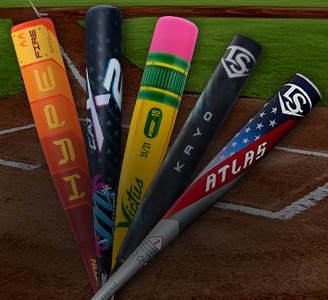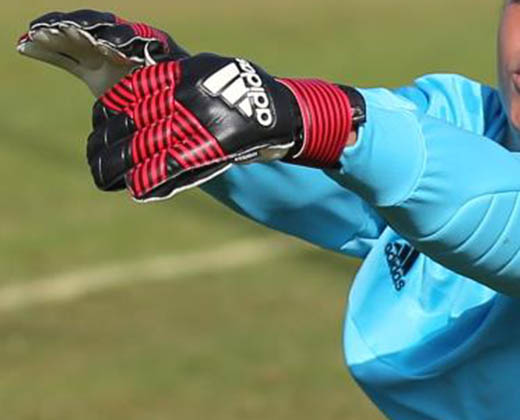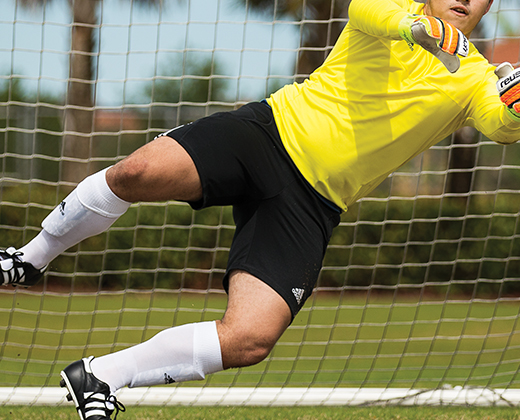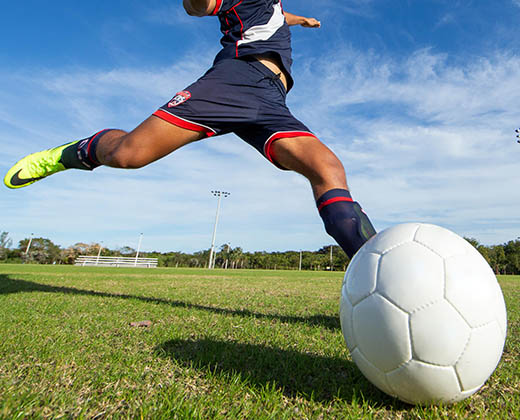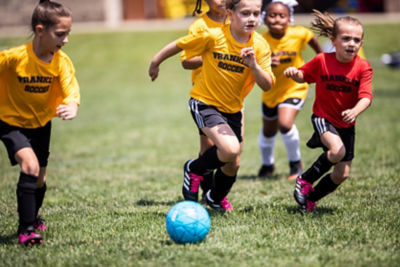The Do's and Don'ts of Being a Soccer Goalkeeper
Refresh your skills with these goalkeeper tips on how to command the pitch while also familiarizing yourself with the rules.
Soccer is a fast-paced game for all members of the pitch. While goalkeepers don’t pass and strike the ball as often as field players, they can use their hands to control and maneuver the ball. Due to the game’s fast pace, goalkeepers must be prepared for quick and sudden movement. Always remember that a goalkeeper’s main focus is to prevent the opposing team from finding the back of the net.
There are specific rules for goalkeepers that are crucial to keep in mind. Can goalkeepers touch the ball outside the penalty area? How long can they hold the ball for? Pro Tips is here with some do’s and don’ts that can help you stay on your game between the posts.
DO: COMMUNICATE WITH YOUR TEAMMATES
Goalkeepers might wear a different color than the rest of their teammates, but they’re still part of a cohesive group. Using your voice and being vocal with your teammates is crucial. As the goalkeeper, you have the best view of the pitch. Goalkeepers see everything that’s happening in front of them. When in net, there is no action happening behind the goalkeeper, only forward.
Division I goalkeeper coach and trainer Erik Eisenhut says, “Make sure you speak loudly and give specific commands, so everyone understands where to go and what to do. Specifically start all commands with the first name of the person you are communicating with.”
DO: CALL OUT WHEN GOING FOR THE BALL
Keeping in line with communication, you should always call out when going for the ball. Whether it’s on a corner kick or on a one-on-one play, goalkeepers should use a loud voice when going for the ball. Simple calls you can make include a loud “Keeper” call, so teammates know to get out of the way.
“If you are not going after a ball, be sure to shout, 'Away,’ so defenders can pursue clearing the ball out of your defensive third,” Eisenhut says.
DO: COMMIT TO YOUR DECISION
Goalkeepers must be confident in their decision making. If you decide to come out of your net to kick the ball or make a block, be sure to stick with that decision. Second-guessing your decision can lead to retreating back to the net when it’s too late, setting the opposing team up to score.
“Hesitating can leave you unable to stop the shot,” Eisenhut explains. “Have faith in your footwork and technique, and go all out when appropriate.”
DO: HAVE A STRONG MENTAL APPROACH
Soccer is just as much a mental game as it is physical. Goalkeepers are human and therefore prone to mistakes just like any other player. However, it’s important to learn from mistakes and then move on. If a goalkeeper faces a shot and it goes past them, they should recover and move onto the next shot.
“Having positive reinforcement from teammates and coaches can go a long way, too,” Eisenhut says. “Goalkeepers are just one of 11 players on the pitch at a time. Soccer is a team effort, and one play doesn’t make or break an entire season.”
DON’T: TOUCH THE BALL OUTSIDE THE BOX
On the pitch, goalkeepers will primarily be inside the penalty area. This is the area where goalkeepers can touch the ball with their hands. However, if you step outside the penalty area, you’re considered to be a field player. This means you cannot touch the ball with your hands anymore. At this point, you can only use your feet or head.
According to Eisenhut, touching the ball outside of the penalty area will be whistled as a foul, and the opposing team will receive a direct free kick.
DON’T: PICK UP A PASS FROM A TEAMMATE
Whether you’re inside or outside the penalty area, it’s against the rules to pick up a ball played back to you by your teammate. This is called a pass-back. If a field player receives the ball and can’t find an open player, they can send it back to the goalkeeper to set up a play or send the ball down the pitch with a booming kick. However, picking up the ball can result in a foul, and the opposing team will be rewarded an indirect free kick.
DON’T: HOLD THE BALL LONGER THAN SIX SECONDS
Goalkeepers have a limited amount of time to hold onto the ball after making a save. If you hold the ball for more than six seconds, you will be called for a delay of game. Depending on the officiating crew, a first offense can be called for a warning. However, if the pattern continues, the referee can call a foul, resulting in an indirect free kick.
“After an initial warning, a yellow card could be issued if the instance happens again,” Eisenhut says.
Remembering these key rules can help you stay focused while defending the net. Looking for more ways to help improve your goalkeeper skills? Be sure to study up on how to make a diving save and how to distribute the ball with these Pro Tips.

